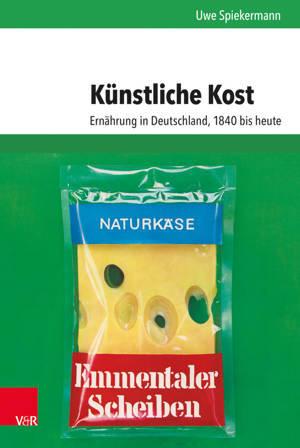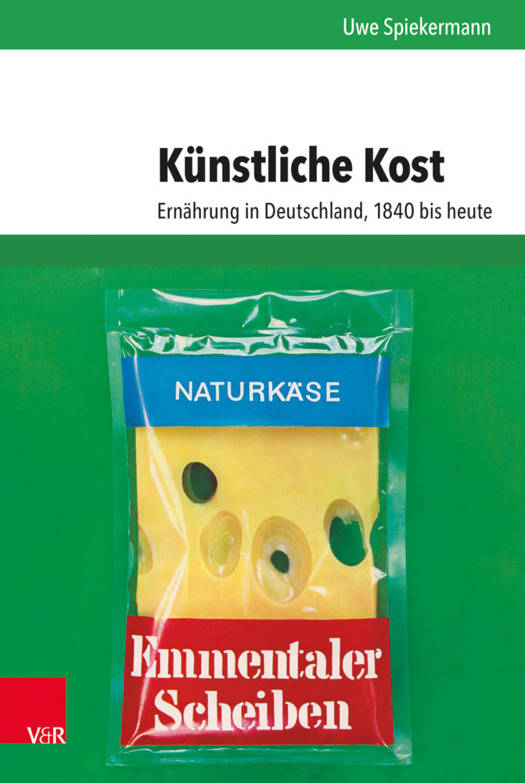
- Retrait gratuit dans votre magasin Club
- 7.000.000 titres dans notre catalogue
- Payer en toute sécurité
- Toujours un magasin près de chez vous
- Retrait gratuit dans votre magasin Club
- 7.000.0000 titres dans notre catalogue
- Payer en toute sécurité
- Toujours un magasin près de chez vous
Description
English summary: Nutrition was shaped by a paradigm shift in the middle of the 19th century: Food was no longer understood as an integral part of human life and health, but as a combination of nutrients. The new knowledge, propagated by scientists, established a new hierarchy of knowledge to rationalize and improve everyday behavior and traditional eating habits. Science gained control over the human environment, food, and man himself. It helped to improve food production, to explore and to develop new products and markets. New control systems were established, while everyday practices were devaluated. Foodstuffs were increasingly dissociated from their tradition and cultural environment, becoming "artificial." The long shadow of the nutrient paradigm is shaping nutrition until today.This book evaluates the long-term consequences of this new way of thinking and acting. It analyzes the interaction of science, business, and state-all arguing in favor of their idea of modern consumers. In nearly one hundred sub-chapters, it presents the fascinating story of new products, new markets, new security, and new risks and fears linked to nutrition. In Germany, wars and crisis triggered and accelerated changes, while peace periods pushed the circulation of innovations into mass markets. "Artificial food" examines, how speaking on nutrition has changed over the last 180 years, how an ever more complex technology required new forms of advertising, how additives became necessary and how requirements and prohibitions have shaped our daily eating. Those, who know about this history, won't follow easy messages and paroles and will act differently with all foodstuffs, they are incorporating. German description: Mitte des 19. Jahrhunderts veranderte sich das Wissen uber Ernahrung grundlegend. Aus einer Ganzheit von Lebensmittel und Speise wurde eine Mixtur von Stoffen. Wer von Eiweiss, Fett und Kohlehydraten, spater von Mineralstoffen und Vitaminen sprach, distanzierte sich vom taglichen Essen. Gleichzeitig konnte er jedoch messen und wagen, die Stoffe analysieren, Ernahrung planen und verbessern. Neue Produkte wurden so moglich. Die neue Kunstliche Kost war nahrhaft und schmackhaft, doch nicht langer von Herkunft gepragt. Sie verbreiterte die Lebensmittelpalette, erlaubte Versorgungssicherheit, schuf neue Risiken und entwertete die praktische Kochkunst. Der lange Schatten dieses neuen Wissens bestimmt bis heute unsere Lebensmittel, unser Essen.Dieses Buch bietet in fast hundert Unterkapiteln ein faszinierendes Panorama der Veranderungen der Ernahrung seit Mitte des 19. Jahrhundert. Akteure in Wissenschaft, Wirtschaft und Staat rangen um die Konturen des Neuen, umgarnten fursorglich die Konsumenten. Kriege und Krisen beschleunigten den Wandel, in Friedenszeiten verbreitete sich "kunstliche Kost" in den Massenmarkten. Der Autor untersucht, wie sich das Reden uber Ernahrung verandert hat, wie Werbung notig wurde, wie Zusatzstoffe Bedeutung gewannen und Gebote und Verbote den Essalltag bis heute pragen. Wer um all dies weiss, wird reflektierter essen, wird einfachen Botschaften und Parolen nicht mehr folgen, und anders mit dem umgehen, was er sich einverleibt.
Spécifications
Parties prenantes
- Auteur(s) :
- Editeur:
Contenu
- Nombre de pages :
- 948
- Langue:
- Allemand
- Collection :
- Tome:
- n° 17
Caractéristiques
- EAN:
- 9783525317198
- Date de parution :
- 14-05-18
- Format:
- Livre relié
- Format numérique:
- Genaaid
- Dimensions :
- 170 mm x 236 mm
- Poids :
- 1578 g

Les avis
Nous publions uniquement les avis qui respectent les conditions requises. Consultez nos conditions pour les avis.






